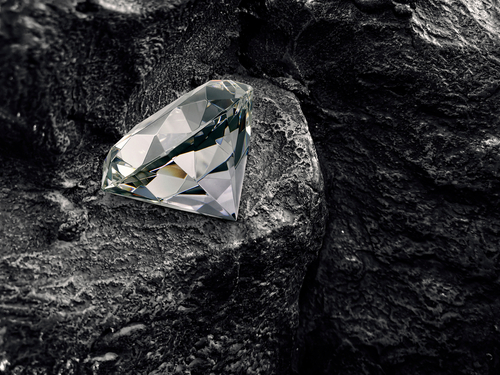
The effectiveness of the new sanctions is in danger due to the Russian counter-strategy and the inconvenient opposition of Belgium
The trade in rough diamonds with Russia, estimated at 4.5 billion euros in 2021 and in constant growth, according to reliable European sources, could be banned or at least severely limited by the European Commission in the latest sanctions package against the Kremlin, in response to a clear tones escalation in the ongoing conflict against Ukraine.
Up to now, in the 7 previous sanctions packages, the only unrestricted trade between European countries and Russia was precisely that relating to rough diamonds, actually because of the great economic importance that this exchange represents for a large part of Europe. The eighth package of sanctions, however, has yet to be approved by the Council’s Permanent Representatives Committee (Coreper) and before the official list is published, the measure in question is only hypothetical but no less worrying.
Ursula Von Der Leyen, president of the European Commission, in announcing a new tightening against Russia, on Wednesday 28 September, specified that in addition to the diamond trade, sanctions will also be proposed relating to fundamental technologies for the Moscow industry, as products chemicals, steel products, precious metals, civilian weapons and pharmaceutical products with the aim of weakening the Russian war machine.
To hinder the implementation of the new sanctions and specifically those relating to the export and import of rough diamonds by Russia, there is Belgium which, with the city of Antwerp among the most important cities in the world in the market of diamond’s cutting and polishing services, would risk the loss of more than 10 thousand jobs and an even more serious economic crisis. Therefore, Antwerp cannot afford a total diamond embargo with Russia but at the same time it cannot hinder, as a European country, the activation of a new package of sanctions that could be considered among the most important designed so far.
The premier of Belgium Alexander De Croo, in a conference in recent days, exposed all the concerns of the Belgian government on the issue of European self-damage with sanctions too tied to a now globalized trade such as that of precious stones. Although there were signs of openness on the part of Belgium diplomacy towards the requests of other states such as Poland and the Baltic countries that have done their persuasion work but there are still unveiled fears relating to the restrictive measure on the diamond trade.
To be honest, already today, the export of diamonds to Russia by European countries has been interrupted to damage the oligarchic Kremlin elite but, the export is still allowed by Moscow to Europe, precisely to limit the economic damage of the nations involved in the trade of precious stones.
Ukraine, in recent days, has signaled Moscow’s pressure on the pro-Russian nation of Belarus, in order to reach the top of the Kimberley Process Certification Scheme (Kpcs), the international body that certifies the use of the diamonds trade profits so that they cannot be used to finance civil wars or overthrow legitimate governments. Of course, with the war going on, Russia would use every possible resource, including the profits made from the diamond trade, to economically feed its damaged war machine, and a friendly nation, in the controlling body, would definitely be very usefull.
Circumventing the restrictions on the trade in rough diamonds from Russia, which should be present in the eighth sanctions package, to be honest, could be relatively easy by mixing Russian diamonds, surely “bloody” with those from other nations, before introducing them in the European market, so as to be classified as “of mixed origin” and bypass the controls that would prevent them from entering the EU.



 Subscribe
Subscribe